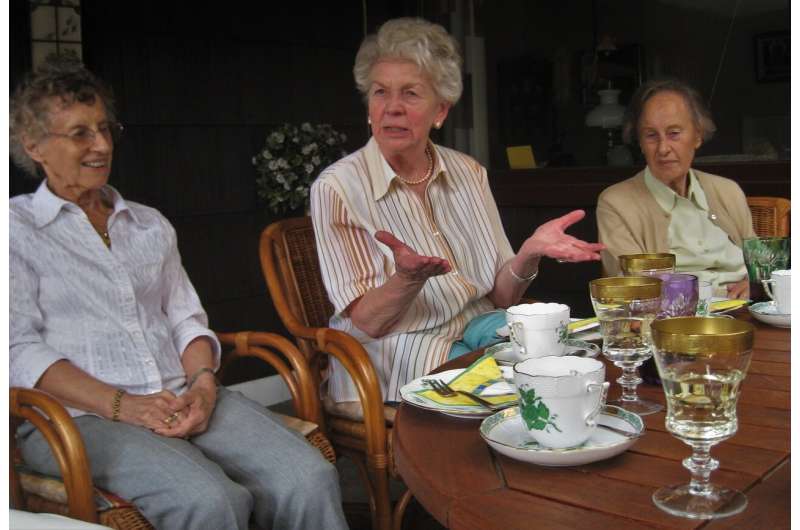This article has been reviewed according to Science X's editorial process and policies. Editors have highlighted the following attributes while ensuring the content's credibility:
fact-checked
trusted source
proofread
Understanding rapid weight loss in older women

Unexplained rapid weight loss in older people could be a sign of underlying disease and can be linked with increased risk of falls and fractures, as well as a poorer long-term prognosis.
The understanding of factors that could contribute to rapid weight loss remains poor, with current treatments including correcting suboptimal dietary and physical activity behaviors.
New research by Edith Cowan University (ECU) Postdoctoral Research Fellow Dr. Cassandra Smith noted that abdominal aortic calcification (AAC), a marker of advanced blood vessel disease, was linked to higher risk of rapid weight loss in the 929 older women who participated in the study. The work is published in the journal Arteriosclerosis, Thrombosis, and Vascular Biology.
Rapid weight loss is defined as a more than 5% decrease in body weight within any 12-month interval over five years of observations.
"Rapid weight loss, when it occurs in older women can be a sign of bad things to come such as early institutionalization, cognitive decline, Alzheimer's disease, and pose a higher risk for falls and fractures," Dr. Smith said.
During a five-year observation, 39.4% of the patients had rapid weight loss, which was associated with a 49% increase in the risk of dying in the next 9.5 years. This risk of dying increased to 87% in women who experienced rapid weight loss of more than 10% in a 12-month interval.
When looking at the 1 in 2 women who had moderate to extensive AAC, they were 36% and 58% more likely to have rapid weight loss over the five years. The results remained similar after adjusting for dietary factors, blood pressure and cholesterol. Importantly this link was still seen in women meeting protein and energy and physical activity recommendations.
Dr. Smith said the explanations for the relationship between AAC and rapid weight loss remained unclear. One hypothesis is that AAC could limit blood flow to the gut, which could affect the absorption of nutrients.
"This has the potential to change how we treat those older individuals who present with rapid weight loss," Dr. Smith said.
"The traditional approach would be to increase protein and energy intake, but data is showing us that it could actually be vascular disease that is driving that weight loss, in which case using the traditional approaches may not help with body composition."
"Given the poor outcomes commonly associated with rapid weight loss in older adults, AAC may be a tool to identify those older women with highest risk. It also opens the door to an opportunity for cardiovascular disease risk screening and to consider disease in other vascular beds or organs that may be influencing body composition."
"The next steps of this research are to replicate these findings in other cohorts, to perform studies with blood flow measures and the capacity to track macronutrient absorption."
More information: Cassandra Smith et al, Extent of Abdominal Aortic Calcification Is Associated With Incident Rapid Weight Loss Over 5 Years: The Perth Longitudinal Study of Ageing Women, Arteriosclerosis, Thrombosis, and Vascular Biology (2023). DOI: 10.1161/ATVBAHA.123.320118



















